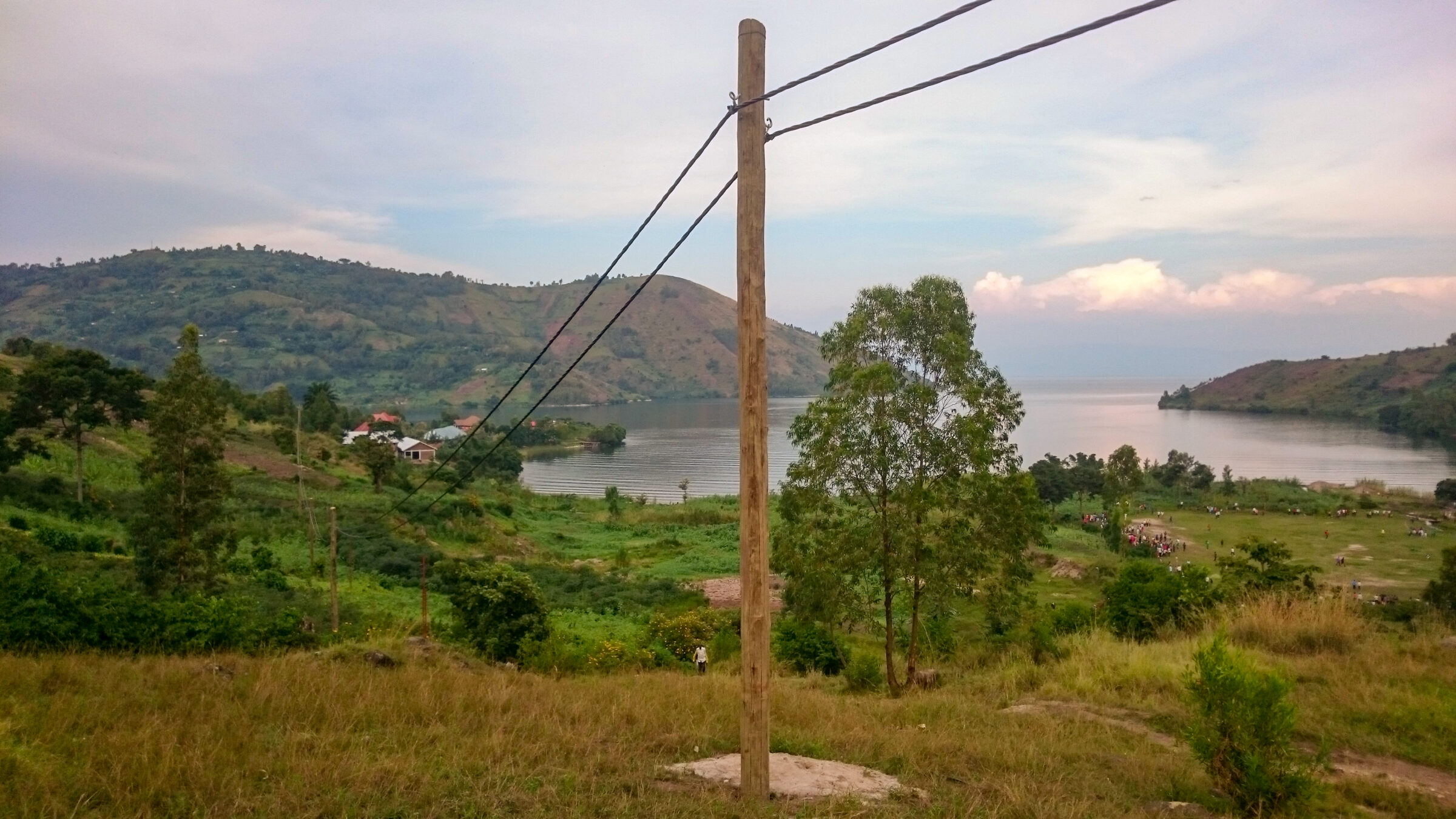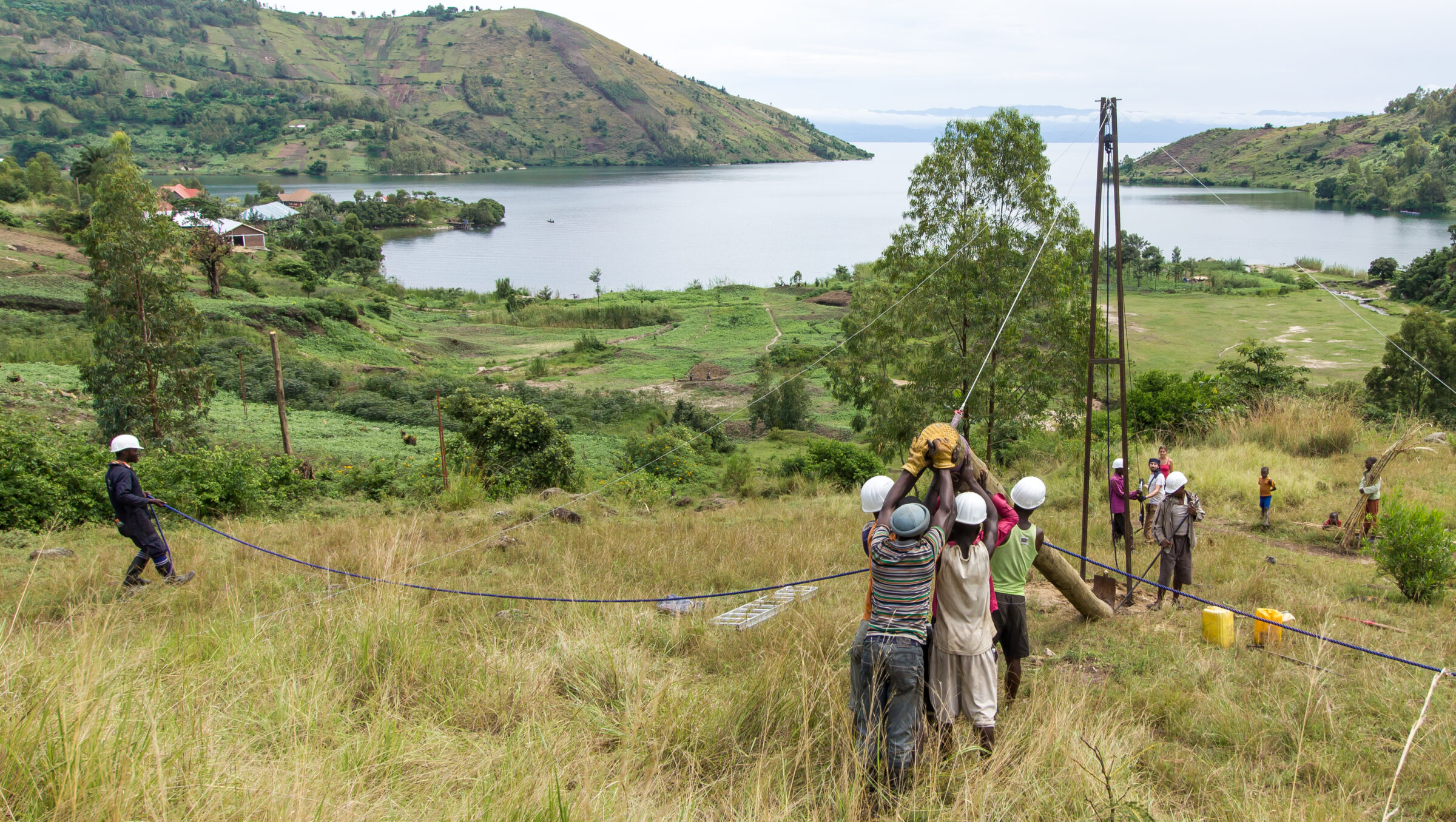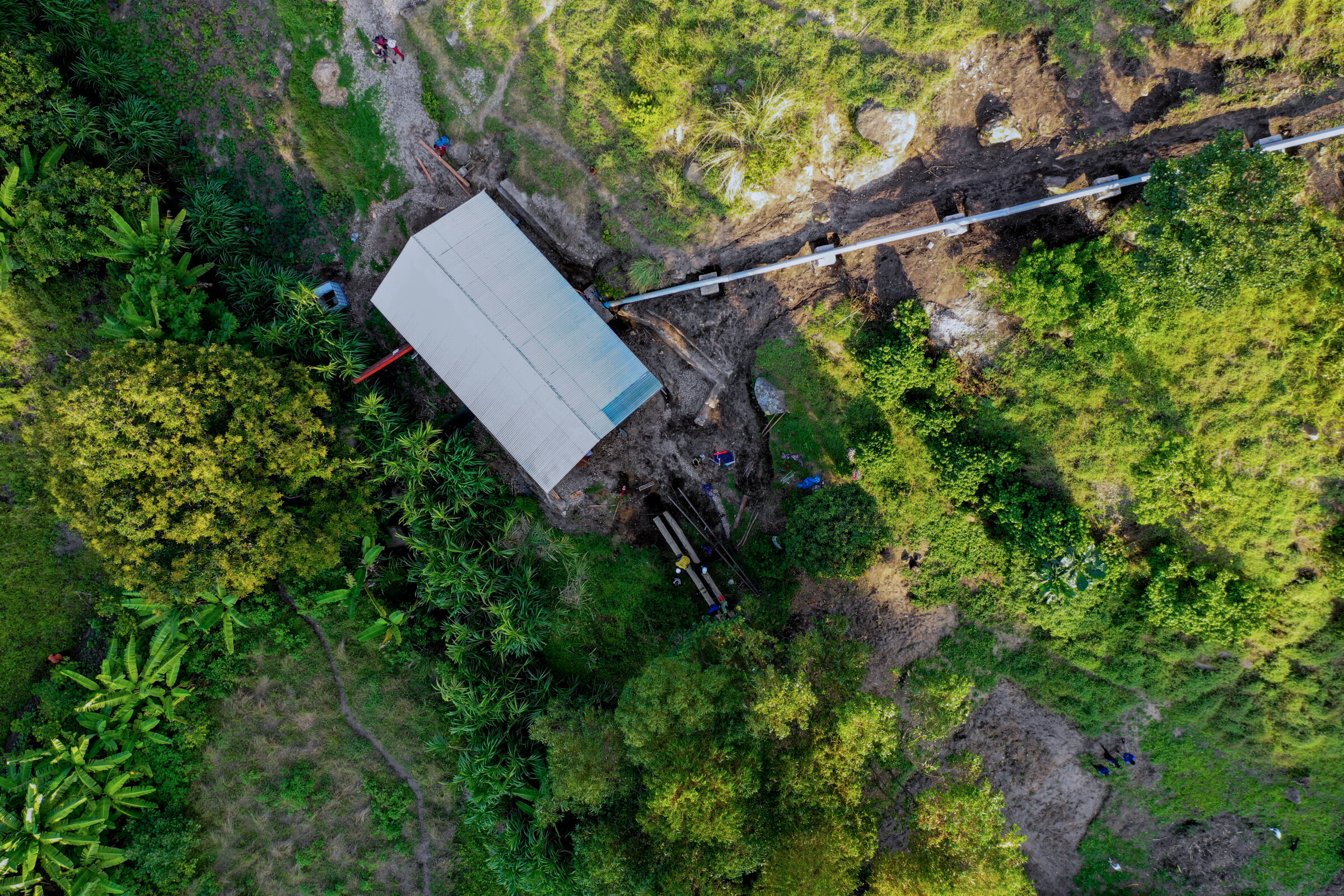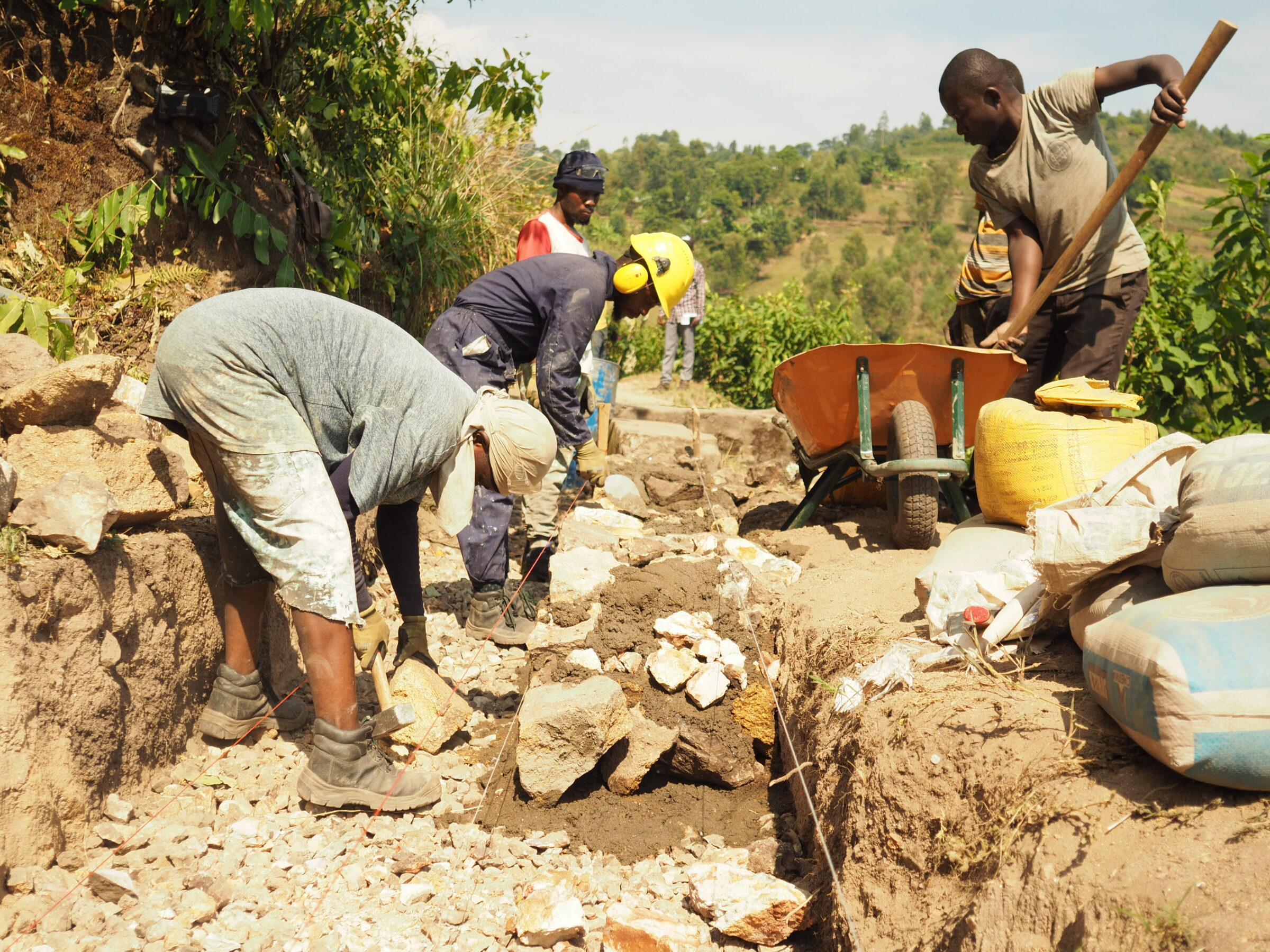Engineers Without Borders (EWB) – Hydroélectricité Idjwi
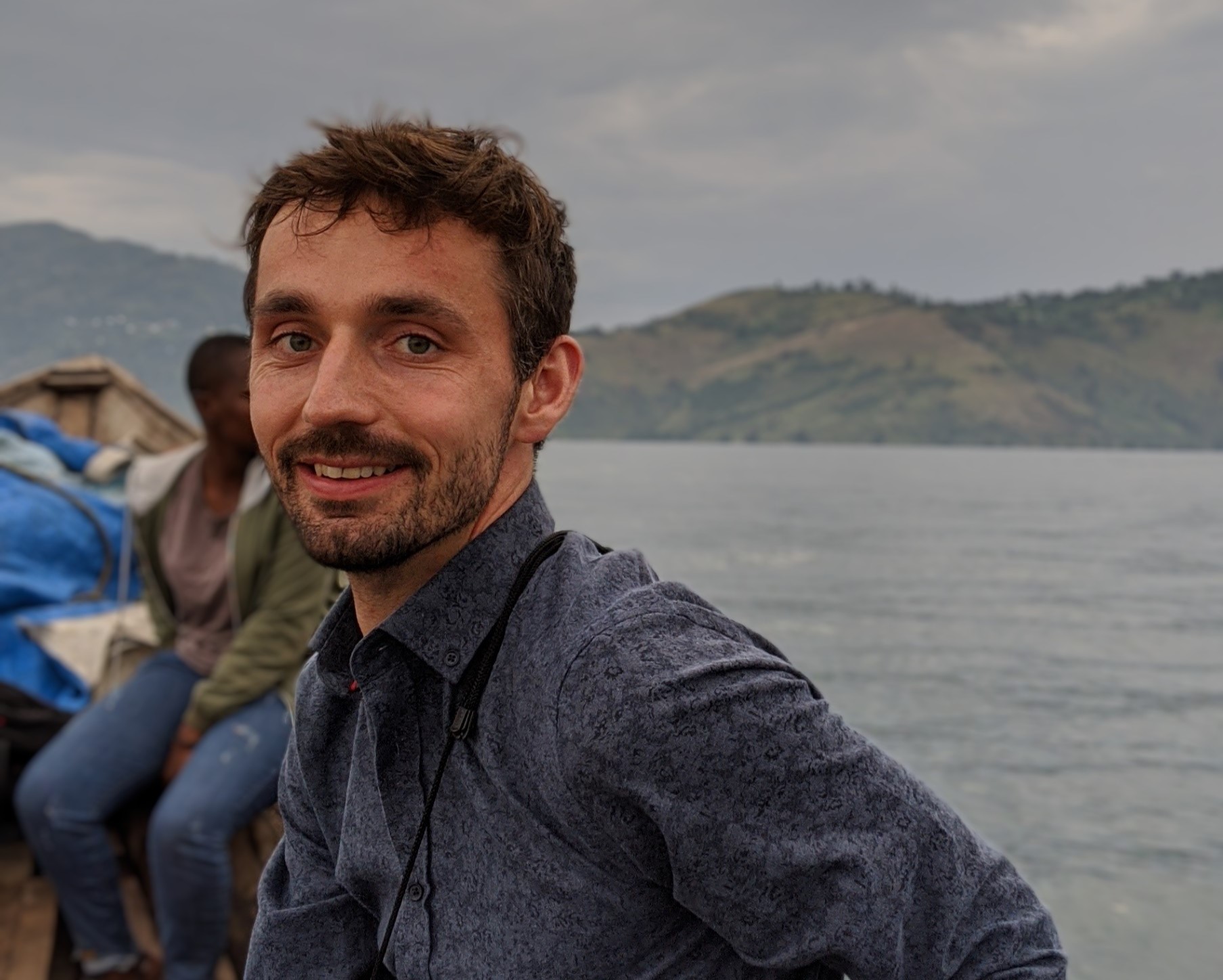
Johann Kraft has been with Engineers Without Borders (EWB) Karlsruhe e.V. since 2016, and from 2019-2022, he served as the project leader of the “Hydroelectricity Idjwi” project. We have known each other since our studies in Karlsruhe in 2018 and have been in contact since then. In early 2024, we conducted an interview with him, in which he reported on his visit to Idjwi at the end of 2023 as part of the EWB project on Idjwi.
How did the EWB small hydropower project on Idjwi begin?
Engineers Without Borders (EWB) refers to a series of non-governmental organizations that operate development projects for disadvantaged communities worldwide with technical knowledge. The EWB association at the Karlsruhe Institute of Technology (KIT) also implements non-profit projects around the world. The association had been active in Central Africa, including a solar project in Uganda for a school. In 2013, we began developing the “Hydroélectricité Idjwi” project.
The father of one of the project initiators (Jorrit) had been working in Eastern Congo for development organizations for many years. This established the contact with one of our project partners. The organization ECP operates schools in Eastern Congo and was interested in a decentralized electrification project. The rural part of Eastern Congo is largely unelectrified. We were interested in the idea and undertook an initial exploratory trip in 2017, during which a team traveled to Eastern Congo and became acquainted with the project.
From the beginning, we wanted to implement a small hydropower plant. In our opinion, this had the greatest potential and would not encounter some of the sustainability issues associated with solar energy. The ideal location was Idjwi. Although the project had already been initiated in 2013 by a local organization (PROLASA), it had not been completed in the four years until our visit due to technical and financial difficulties. So, during the first EWB trip in 2017, we already found a small hydropower plant and an industrial campus, but they were more or less dormant. They were small, conveniently located buildings. The power plant was not functioning properly.
EWB decided that this location was the most favorable for project implementation. Idjwi has high rainfall and is mountainous, with many small streams. We realized that ideally, small hydropower could support many small businesses decentralizing, from carpentry workshops to electric mills or infrastructure for coffee processing. Agricultural processing was the focus of our project from the beginning. We began analyzing the problems faced by the people of Idjwi.
What issues does the project address?
The situation in Eastern Congo is complex and varied. Without electricity, the development of the local population, the scope for development, is extremely limited. This affects household development, such as lighting or electronic devices. But also, economic development in the communities is enormously difficult due to the lack of electricity. Economic ideas that seem completely normal to us Europeans cannot be implemented without electricity. Instead, unprocessed raw materials must be exported and then re-imported after processing. The necessary electricity must be generated expensively with diesel.
On the island of Idjwi in Lake Kivu, this problem is particularly acute. Local value addition is too low, there is too little work. Before the project, diesel had to be brought from the mainland to the island by boat for electricity generation. This is not only dangerous but also expensive.
Even before there was electricity and before coffee could be processed locally, the cooperative and its coffee were important for structural change on Idjwi. Coffee created jobs. The fact that there is now the possibility to process coffee locally without relying on diesel is a great thing. With diesel generators, it’s too expensive and there’s also dependence on the price of diesel. The profitability of the work processes fluctuates depending on the daily diesel price. A huge problem. Looking at the whole picture, when diesel is purchased, hard-earned money goes out of the country, whereas with hydropower, the value creation stays with the local population. With small hydropower, this effect is even stronger. The point of renewable energies is not to have ongoing costs. An initial investment should be sustained through savings over the years and then generate electricity without excessive maintenance costs. Unfortunately, with solar energy, a huge proportion of the initial investment in high technology goes to China or Europe. The value is created in Europe or China. With small hydropower, the ratio is different. Much of it is done by hand. In our project, we achieved 40-50% local value added, almost half of the services could be provided on Idjwi and in the Kivu region! This is better than solar and much, much better than diesel. This allowed for a constant and low electricity price to be achieved.
As the power plant stands now, businesses on the industrial campus can operate at about 15-20 cents per kWh. Previously, when people were still dependent on diesel shipped on boats, the costs were 50 cents per kWh. With today’s diesel prices, the costs are 80 cents per kWh. The industrial campus was operated with diesel for a long time. When diesel prices rose, the last value creation, even the last processing industry, moved away from Idjwi. At current diesel prices, local processing on the island only makes sense through the small hydropower plant. For the cooperative itself, this reduces processing costs, which brings good news: better prices for farmers, reinvestment in projects. The money no longer ends up in the accounts of oil multinationals.
How can Direct Trade raw coffee help people on Idjwi? What is your personal opinion on this?
Direct trade relationships have advantages on their own levels. With Direct Trade, more arrives on-site. Different prices are achieved with wholesalers. Quality is no longer as important there, and the chains are long and opaque. You as Direct Trade traders are interested in different qualities. You reduce the quantity, increase the quality, and thus increase earning opportunities. The fact that better quality is created locally, that more work is put in, more knowledge is put in. This promotes local value creation. The product is similar to before, but now it contains more work, more learning, more know-how, more earnings. This creates a huge opportunity.
Even apart from coffee, there is a problem with agricultural exports, that the quality often does not fit. Then many goods are sold below the price. Sometimes the quality doesn’t fit, sometimes the sales channels don’t fit. Or the last step for the great quality is missing. Then it gets mixed up. Direct Trade connections are super valuable for this. Someone shows up for the producers who are interested and provides input. I believe this is a huge opportunity for the region. SCPNCK has already achieved a lot there. The members have big plans and motivation, but they depend on creating a quality that achieves these prices. This is made possible by the electricity and your connections.
I believe SCPNCK does a lot in terms of quality even apart from this hydropower plant. The CEO of SCPNCK, Gilbert, is energetic: building a coffee lab, training, visiting festivals in consumer countries, … there’s a lot going on completely apart from electricity supply. But electricity is an important puzzle piece of this progress. Apart from the factual, visible aspects, connections are also super important! People learn from each other, they know about each other, people get in touch with each other. In the fall of 2017, during our visit, we took coffee from Idjwi with us for the first time. As a team, we each took 1kg of raw coffee in our carry-on luggage. We had the raw coffee roasted, packaged, and sent to all project supporters as a Christmas gift. So, they had something in hand that showed the success of the project. Later, in 2019, I met Lennart from This Side Up in the Netherlands at the WOC 2019, together with Gilbert. We attended This Side Up’s Producer Meet Up, where producers and roasters come together. Experiencing the workshops and the coffee fair together was super cool.
For me, even now that I am no longer active with EWB, it’s always great to see what has become of such a rather random encounter in the village. 7 years later, people are actually importing this coffee and making something out of it. Seeing that is personally fascinating and motivating for me.
What’s next for you?
The expansion of the hydropower plant is now officially completed. It generates about 50 kW, soon possibly up to 80 kW. There will still be monitoring activities for a year or two, but in general, it’s important for EWB to complete a project and then empower the beneficiaries to move on. I have just completed my master’s degree and am now continuing research on electricity supply in the Global South. I also want to get involved again in the post-project phase with EWB. It may be that, out of personal motivation, I will be back on the island of Idjwi in April 2024. My girlfriend works in research in the field of biology/medicine in Berlin. She also researches malaria on Idjwi, among other things. So, there are many overlaps. Development work and Idjwi will continue to accompany me.
All the best on your continued journey, Johann!
A special thanks for the valuable insights and the photos goes to Johann Kraft (EWB Karlsruhe, Project Leader Hydroélectricité Idjwi 2019-2022) and Mirko Sowa (EWB Karlsruhe, Project Leader Hydroélectricité Idjwi 2022-present). Find more information about the project here.
